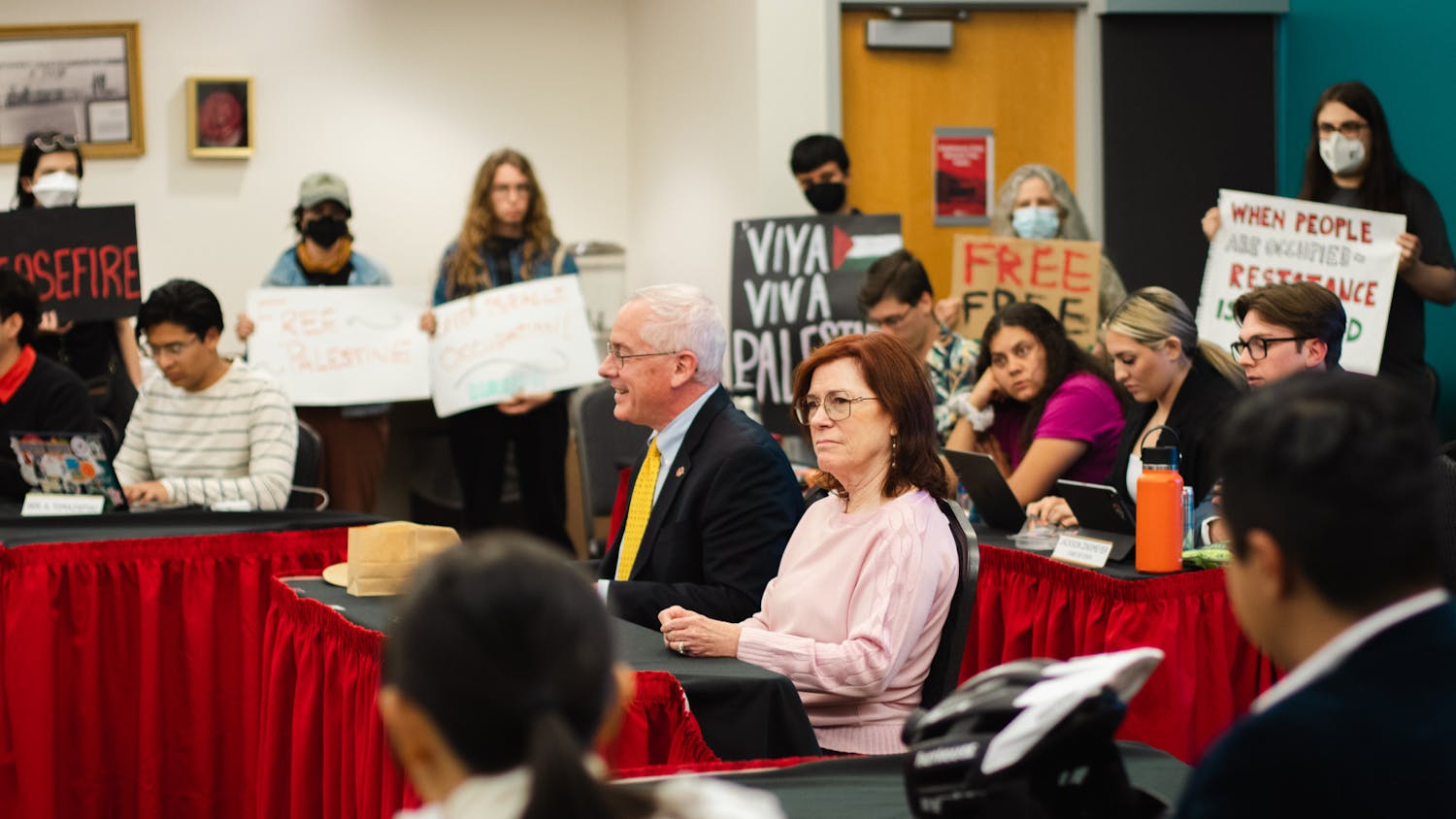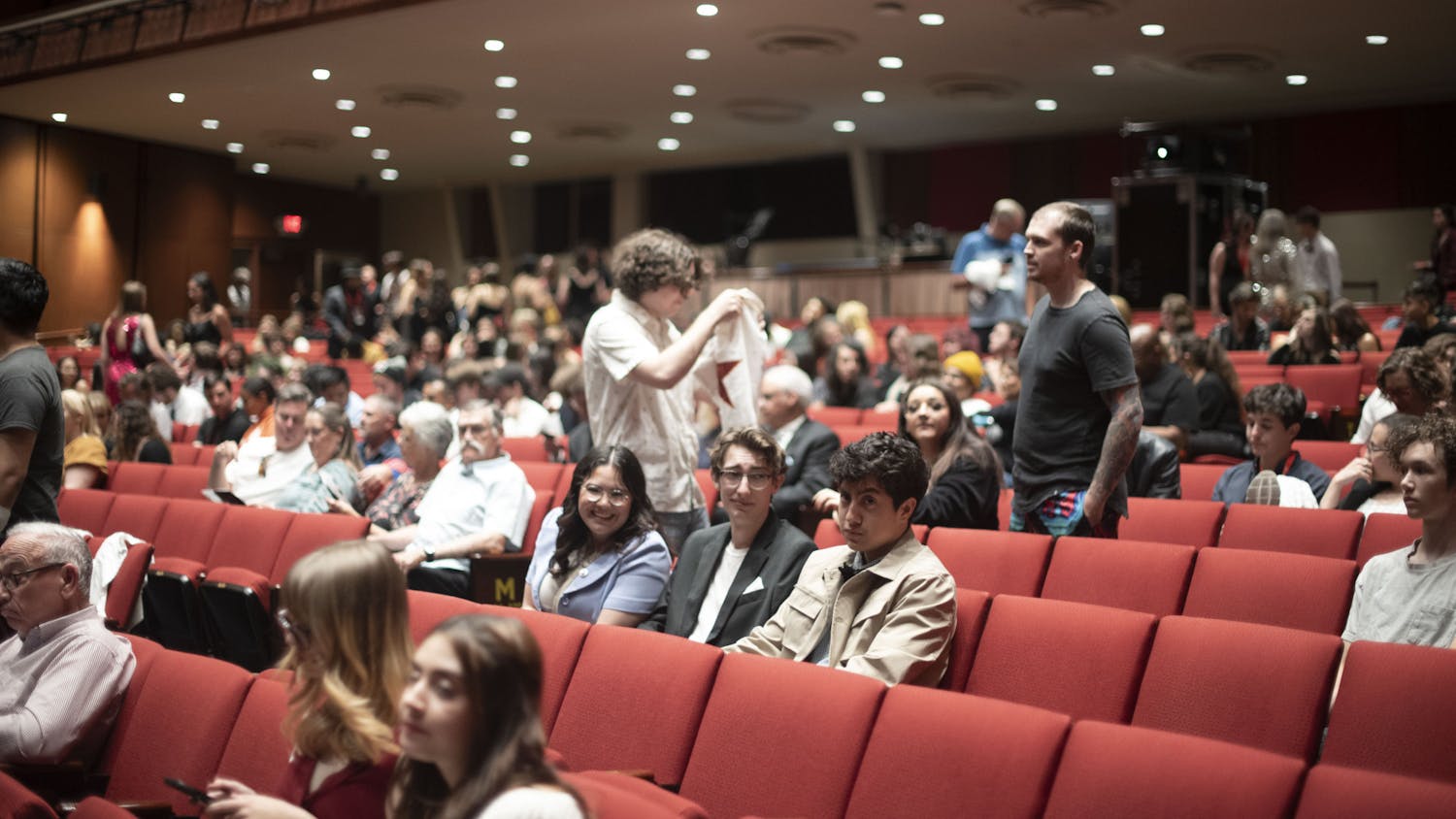Editor's Note: The original version of this article neglected to mention the UNM Student Health and Counseling as a resource available to students who may not want their situations reported to the Office of Equal Opportunity, as well as the services that the SHAC provides. This article has been changed to include that new information.
There has been widespread debate on campus this year about a year-old UNM policy that makes all faculty and staff mandatory reporters of Title IX violations.
UNM Title IX Coordinator Heather Cowan said the policy, which was installed in May of 2015, requires all faculty and staff to report any Title IX violations they are told about, unless the violation is part of a class discussion or comes up in academic work.
Potential Title IX violations include allegations of sexual harassment or assault.
Even if a student discusses a situation with their teacher one-on-one, the teacher is now required to report it to University administration.
“If they discuss it as part of the academics then that’s not reportable because that’s part of the learning process and class work and academic creation,” Cowan said. “If the student comes and says, ‘I need to be out of class or I need to retake an exam because I was a victim of sexual violence or intimate partner violence,’ those are the kinds of situations they need to report.”
The school is required, under Title IX, to give all students access to the same list of resources, she said.
“We want to make sure you know about counseling, medical assistance and other kinds of advocacy on and off campus, and if they don’t choose to respond to us, that’s totally fine,” she said. “We are never going to compel a student to respond to us.”
However, occasionally the Office of Equal Opportunity on campus will begin investigating a situation, even if the student involved in the report does not want it to be investigated, Cowan said.
In some situations, such as multiple complaints against the same individual, Cowan said each complaint against that individual doesn’t need to be investigated.
The American Association of University Professors actually advises against universal mandatory reporting, said Elizabeth Hutchison, head of the Feminist Research Institute and professor of history at UNM.
“The main concern there is that the obligation to report and our inability to provide students with the confidentiality they may request, may have a chilling effect on whether students want to report incidents of sexual violence,” she said.
Get content from The Daily Lobo delivered to your inbox
Cowan said faculty reaction to the policy varies, with some strongly in support of the policy and others arguing that it inhibits their ability to maintain relationships with students.
Currently, UNM has a Title IX committee and is gathering anecdotal evidence to see if the policy can be changed to better suit faculty and student needs.
Hutchison said she and others on campus want to begin a conversation about the pros and cons of the policy.
Despite being in effect for over a year, many faculty and staff were unaware that they were mandatory reporters until about a month ago, Hutchison said.
“Lots of policies get revised, written and reviewed every semester, and at the time I don’t think that this particular clause came to our attention because we weren’t reading the policy that way,” she said.
Cowan said the Title IX committee was asked by several faculty members to draft official language for syllabi the previous school year.
There was confusion at first over whether the language associated with Title IX was required to be on syllabi or not, Hutchison said, resulting in some faculty who felt they had to include it to comply with federal rules.
Cowan said she was surprised that people were not aware of the universal mandatory reporting requirement.
“We didn’t think it was flying under the radar at all. We did all of the same stuff. We sent it to stakeholders. We asked everybody to look at it. We publicized it. We sent out news releases that the policy was coming out,” she said. “It was a huge change with policy. It went from being two paragraphs to 27 pages now.”
Charlene Blackledge, a junior sociology major, said she didn’t know about the policy, and if she had gone to a teacher in confidence, she would have been upset to find out her situation would have to be reported.
“Professors are a good source of guidance and support,” Blackledge said. “There are a lot of professors who are really dedicated to helping students, who should be able to do so.”
There are people who don’t want to report for any number of reasons, she said, but they still want support and may feel they can’t rely on the people they know.
That’s where faculty support, as a resource, may make a difference.
“If they’re mandatory reporter, you only know the professor, you don’t know anybody that professor has to report to, how the system works,” Blackledge said. “So people will be afraid to come out and talk about being assaulted.”
Hutchison said the new policy demonstrates that UNM is setting up reporting mechanisms to make sure the University responds to Title IX complaints.
“Those of us concerned about this are concerned that you have to weigh the benefits of compliance and making sure that it looks like everyone is doing what they’re supposed to do with what individual victims of abuse may want to confide in a teacher or a professor,” she said. “Which may be just a conversation and (the student) not yet wanting to report the incident to an authority who can investigate it.”
The recent U.S. Justice Department investigation of UNM procedure puts added pressure on creating policies related to Title IX, Hutchison said, adding that it’s difficult to tell what the DOJ requirements are because their recommendations are different based on the institution they are working with.
“From what we can tell at this juncture, the Department of Justice does not require mandatory reporting, but rather it requires that universities figure out how to best serve students who wish to report and then investigate those reports thoroughly,” Hutchison said.
Hutchison said that her and other faculty members are contributing ideas for a policy that would be trauma-sensitive with a victim-centered response.
Cowan said because the policy was put in place while the investigation was ongoing, the DOJ has not adequately evaluated the universal mandatory reporting policy.
The policy doesn't completely inhibit students from getting help without their situation being involved with OEO, as there are other on-campus resources available, including Student Health and Counseling.
The SHAC is one entity that isn't required to report specific situations to OEO, instead offering medical care and psychotherapy, in addition to helping point students to local legal resources should they choose to go that route, according to officials on the SHAC Management Team.
Other places where students can go for help without having to worry about anything being reported to OEO are: LoboRespect, the Women's Resource Center and the LGBTQ Resource Center.
“We just don’t talk about sexual assault a lot,” Blackledge said. “At large our society just likes to keep it quiet, so it’s harder to sympathize with victims and it’s harder to understand what the consequences of mandatory reporting might be. Everybody’s afraid to talk about it.”
Cathy Cook is a news reporter at the Daily Lobo. She can be reached atnews@dailylobo.com or on Twitter @Cathy_Daily.





